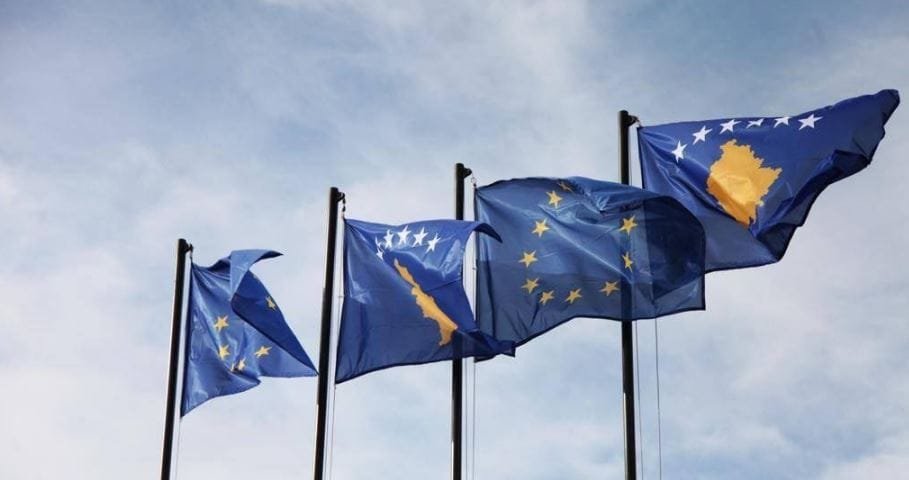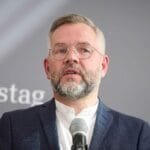The lifting of the measures of the European Union against Kosovo may be difficult, after the last police operations in the north of the country, which have resulted in the closure of several facilities of the Savings Bank of the Post of Serbia. This is how some diplomats in Brussels assess, as they await the report of the chief diplomat of the European bloc, Josep Borrell, to understand what steps Kosovo has taken to lift the measures.
It has been almost a year since the European Union imposed punitive measures against Kosovo, but little is known about who has been harmed the most by this decision.
The Deputy Prime Minister of Kosovo, Besnik Bislimi, said in January of this year that on the political level, measures are limited only to high-level meetings with representatives of Kosovo’s institutions.
“The evaluation and approval of new applications from Kosovo in the Western Balkans framework for investments has been prohibited, which means that Kosovo has not been prohibited from any projects, but new applications have not yet been approved, and new project procurements have been prohibited stemming from IPA 2023 [Pre-Accession Instruments], and discussions have not started for IPA 2024. Existing procurements have not been affected,” Bislimi said.
The spokesperson of the European Union, Peter Stano, has said that the authorities in Kosovo are “well informed” about what measures burden Kosovo, mentioning the IPA 2024 funds, the investment framework for the Western Balkans and the SAA meetings, but without offering more very detailed.
The decision to take measures was taken on the grounds that Kosovo did not do enough to reduce tensions in the north of the country in May and June last year.
Details on the measures were not disclosed even when they were communicated. In fact, something like this is not common for the EU.
For example, when the EU made a decision to sanction Russia for the war started in Ukraine, in 2022, the European Commission voted for them, and voted, and will vote every year, for their postponement.
The decision mentions by name each affected Russian individual and entity.
In the case of Kosovo, the measures were not voted on – on the grounds that they are temporary – it was only said that the European Commission is responsible for them, and therefore they are without any deadline.
How can measures be removed?
A few weeks after the measures were imposed, the EU reached an agreement with Kosovo on the extension of the situation in the north, in exchange for the lifting of the measures.
Among the main demands have been the reduction of police presence in and around municipal buildings in the north of Kosovo and the organization of new elections. Kosovo authorities have said that they have fulfilled both.
Currently, the chief diplomat of the European Union, Josep Borrell, is compiling a report about the steps taken by Kosovo to remove the measures. However, it has recently been announced that the police operations of May of this year in the northern part will also be included, which resulted in the closure of several facilities of the Savings Bank of the Post of Serbia.
Both the EU and the United States have criticized Kosovo for these actions, considering them “uncoordinated and unilateral”.
As a result, there are voices in the EU who believe that the process of lifting the measures against Kosovo will now be made more difficult.
But, at the same time, some sources have told REL that there are also EU member countries that are angry, as they believe that the measures have gone beyond what was expected.
What do Kosovo officials say?
All demand the lifting of the measures.
The Minister of Finance, Hekuran Murati, said a few days ago that due to the lack of EU funds, as a result of the measures, Kosovo was forced to allocate additional funds for a project that benefits minorities.
Klisman Kadiu, from the Office of the Deputy Prime Minister Bislimi, says that the situation in the north has escalated and the measures no longer make sense.
According to him, any other finding in Borrell’s report, “would be unfair, would constitute a distortion of developments on the ground and necessarily a one-sided and senseless misuse of measures by the EC”.
Even other government officials in Kosovo insist that the measures are unfair.
They often draw parallels with the imposition of EU measures against Kosovo and the non-imposition of measures against Serbia for the deadly attack in Banjska in Zveçan, in September of last year.
Kosovo blames Serbia for the attack, which it calls terrorist. Belgrade rejects these accusations.
The European Union has said that it is waiting for a detailed report from the Kosovar justice authorities, in order to then make a decision.







